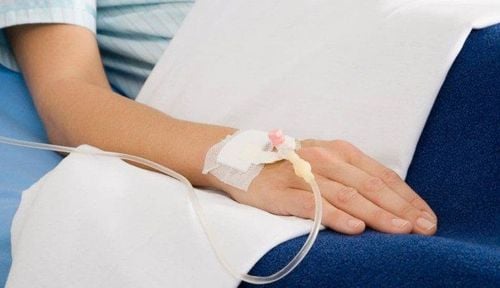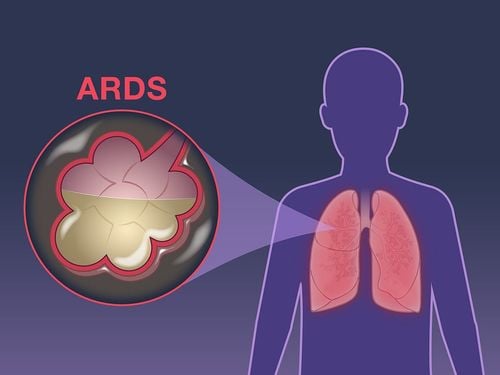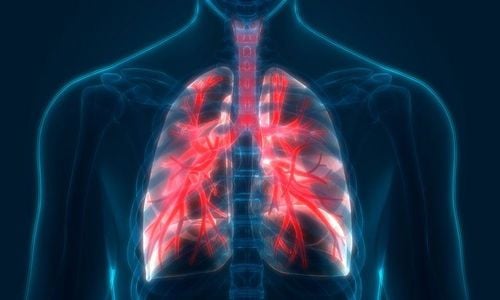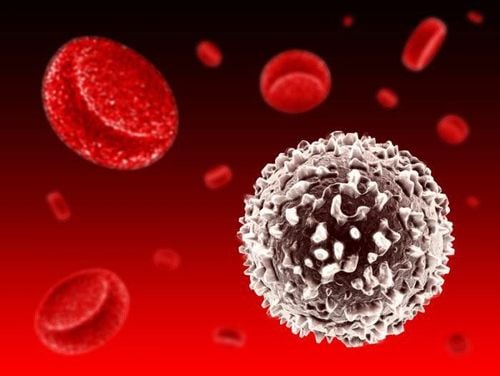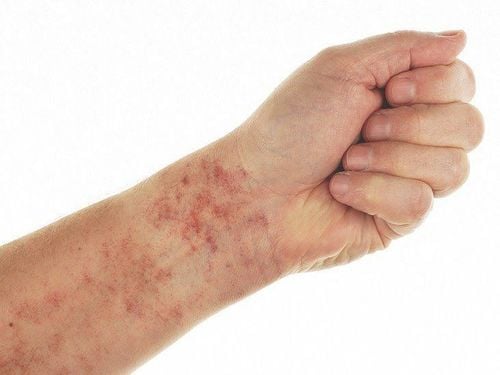This is an automatically translated article.
Article written by Dr. Hoang Minh Duc - Team Leader of Experimental Production Project, Vinmec
Research Institute of Stem Cells and Gene Technology
Although intensive studies have been carried out to better understand and deepen the pathogenesis of Acute Respiratory Distress Syndrome (ARDS), there is not a single treatment or a drug. can reduce the mortality rate of ARDS.
Traditional methods focus on measures to support pulmonary ventilation, increase oxygen support to the patient and reduce pulmonary pressure through external support.
Recently, the application to treat Acute Respiratory Distress Syndrome is becoming a new therapeutic application for a number of reasons such as:
(1) Mesenchymal stem cells are a stem cell line with immune properties. good immune response, does not cause immune irritation, transplant rejection during treatment
(2) This stem cell line has the ability to secrete active substances involved in the regulation of the immune response, reducing the stimulation of the immune system. stimulation of immune cells at the site of inflammation, reducing the effects of cytokines, and regenerating lung alveolar cells
(3) Increases the likelihood of pulmonary rehabilitation through its ability to reduce pulmonary fibrosis after treatment.
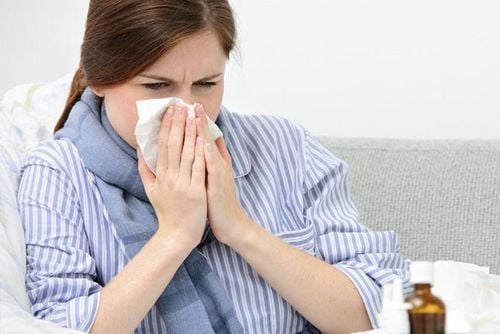
In this report, we will introduce to you a study evaluating the safety of bone marrow mesenchymal stem cell transplantation performed by scientists in the US and published in the journal The world's leading biomedical device is The Lancet Respiratory Medicine with the title "Mesenchymal Stem (stromal) cells for treatment of ARDS: a phase 1 clinical trial".
This is a multicenter, open-label, clinical trial that evaluates the patient's cell concentrations and is a phase 1 safety study. The study was conducted at 03 major centers in the US. included University of California Hospital (San Francisco, USA), Stanford University, and Massachusetts General Hospital (Boston, USA) from June 2013 to January 2014. The patients participating in the study were required to be eligible. diagnosed with acute respiratory distress syndrome (ARDS) according to the 2012 Berlin rating scale with severity from moderate to severe.
A total of 09 patients were eligible to participate in the study. These patients were divided into 3 groups (3 people each): the first group received ARDS with a low infusion dose (1 million mesenchymal stem cells/kg body weight), the second group received ARDS with an infusion dose. medium (5 million mesenchymal stem cells/kg patient body weight), and a third group received a high dose of cell infusion (10 million mesenchymal stem cells/kg patient body weight). The stem cell line is a peripheral vein.

Stem cell sources are collected from the bone marrow of healthy people and proliferated in the Laboratory to obtain a sufficient number of cells to be transfused into the patient. Because this is a cell therapy that uses healthy human cells to give patients with ARDS, it is called allogeneic transplantation.
After stem cell infusion, the patients were continuously monitored within 48 hours and re-examined at 3, 7, 14 days after stem cell infusion. At 6 months post-transplant, the patient was called in for a final evaluation. Some respiratory function was also evaluated in detail in the study to confirm the patient's ability to recover after stem cell transplantation.
The results of the study showed that all patients responded well to stem cells, without adverse events and serious adverse events occurred during and after stem cell infusion. No cases of respiratory failure, heart failure, or cardiovascular problems have been reported following stem cell infusion. In particular, heart rate, blood pressure, pulmonary artery pressure and blood oxygen saturation did not change after stem cell infusion at all 3 infusion doses.
In addition, no patient showed signs of anaphylaxis in all 3 groups after stem cell infusion. Regarding the assessment of the therapeutic potential of the therapy, because this is a phase 1 clinical trial with a sample size of 9 patients, the assessment of the therapeutic potential is still limited.

Although the patient had an improvement in respiratory function according to the lung injury index, the SOFA (Sequential organ Failure Assessment) index did not change much after stem cell transplantation.
Some limitations of this study are that the number of patients participating is small, leading to the results of efficacy evaluation are not statistically significant. With a short evaluation period, 6 months, it is not possible to draw conclusions about the long-term safety of the therapy.
In addition, stem cell transfusion in ARDS patients also faces many challenges because it depends heavily on the patient's condition, underlying diseases, and opportunistic infections that make the patient's condition unstable before during stem cell transplantation.
Through this study, we found that stem cell transplantation even with a high infusion dose (10 million cells/kg body weight) did not cause any complications in patients diagnosed with moderate and severe ARDS on the scale. Berlin 2012. No serious adverse events were reported after 6 months of TBG infusion.
This result demonstrates the feasibility of treating ARDS patients with stem cells, suggesting a further direction to evaluate the safety and effectiveness of the therapy in a larger number of patients and there is a control group.
A randomized, controlled, phase 2 clinical trial to evaluate the safety and efficacy of TBG therapy is needed for future widespread use of this therapy.
Please dial HOTLINE for more information or register for an appointment HERE. Download MyVinmec app to make appointments faster and to manage your bookings easily.





